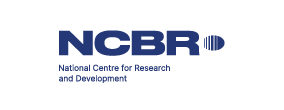QM3

Quantum Multi-Modal Microscopy
Multi-Modal Microscopy (MMM) is a rapidly accelerating, new direction in bio-medical imaging. It promises access to complementary, and thus otherwise hard-to-obtain, information about tissues and cells in a single set-up or even measurement. This can significantly speed up measurements and therefore lead to expanded sample numbers enabling new types of results but at the cost increase for instrumentation. In particular, these high costs hamper the democratization of MMM.
QM3 aims to decisively expand this paradigm by incorporating quantum optical concepts such as two-photon entanglement, antibunching, and Hong-Ou-Mandel interference together with novel single-photon avalanche photodiode (SPAD) arrays and develop a novel industry-ready demonstrator add-on unit to commercial confocal scanning microscopy. This will feature significantly extended functionality in optical microscopy and thereby provide a breakthrough in multi-modal microscopy, which we will demonstrate with the first pilot applications in biomedical imaging.
To achieve this we will jointly develop and engineer different quantum and quantum-enabled imaging modalities (quantum super-resolution microscopy, photon-correlation-enhanced Raman microscopy, quantum-optical coherence tomography, scattering-mitigation microscopy) and combine them, together with the in parallel developed sensor devices, into a multimodal microscopy demonstrator. The project will initially leverage the sensors already developed by the EPFL partner (single-photon detecting matrices, integrated coincidence detection) and along the course of the project specify, fabricate, and implement custom single-photon arrays with performances optimized for our application-ready microscope.

Classical MMM and its quantum supplement adding coincidence registration to the study of Raman and fluorescence processes, or quantum optical coherence tomography.

CONSORTIUM
- Coordinator: Radek Lapkiewicz (University of Warsaw, PL)
- Sven Ramelow (Humboldt-University Berlin, DE)
- Maria Chekhova (Max-Planck Institute for the Science of Light, DE)
- Hilton Barbosa De Aguiar (Laboratoire Kastler Brossel, FR)
- Edoardo Charbon (École Polytechnique Fédérale de Lausanne, CH)
- Michel Antolovic (Pi Imaging Technology, CH)





